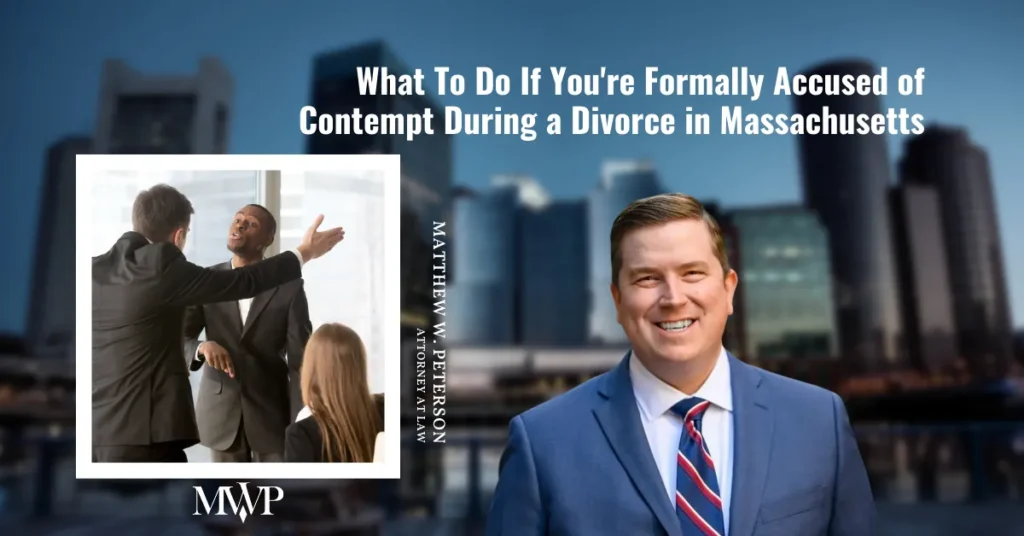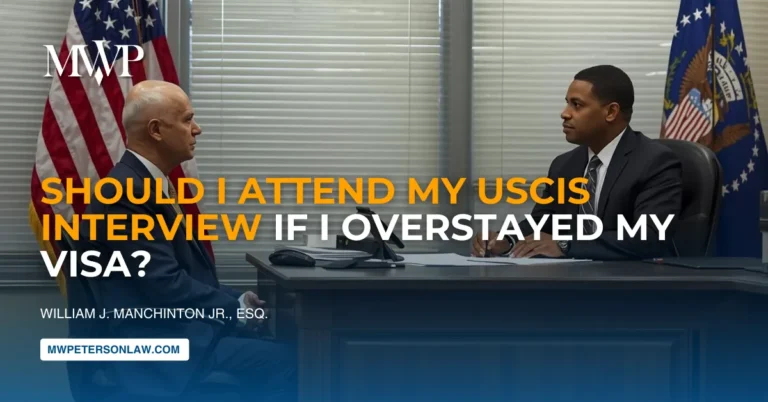Understanding The Contempt During A Divorce In Massachusetts
Being accused of contempt during a divorce in Massachusetts is a serious matter that requires immediate attention. Contempt allegations can lead to significant consequences, including financial penalties and, in extreme cases, incarceration. Here’s a comprehensive guide on how to respond effectively if you face such accusations in Massachusetts, but remember: you stand a better chance of navigating this issue safely with the assistance of an experience attorney.
Understand the Nature of the Contempt Allegation
First, determine whether the contempt allegation is civil or criminal in nature:
- Civil Contempt: Remedial in purpose, aimed at compelling compliance with an order. You can “purge” the contempt by fulfilling your obligations.
- Criminal Contempt: Punitive in nature, addressing past violations with potential penalties regardless of subsequent compliance.
Know the Legal Standard: Clear and Convincing Evidence
As established in In Re Birchall, the burden of proof in civil contempt proceedings in Massachusetts is “clear and convincing evidence.” This standard is:
- Higher than the “preponderance of evidence” standard used in most civil matters
- Lower than the “beyond reasonable doubt” standard required for criminal contempt
This means your accuser must present substantial evidence that you willfully violated a clear court order while having both knowledge of the order and the ability to comply with it.
Immediate Steps to Take
- Consult with an Attorney: Ideally, work with a lawyer experienced in Massachusetts family law and contempt proceedings.
- Review the Specific Court Order: Obtain copies of the exact order you allegedly violated. Look for any ambiguities or unclear directives that might serve as a defense.
- Gather Documentation: Collect evidence demonstrating either your compliance with the order or your legitimate inability to comply. This might include:
- Communication records with your ex-spouse
- Medical documentation if health issues affected compliance
- Employment records if job loss affected financial obligations
- Respond to the Complaint Properly: File a written response to the Complaint for Contempt within the required timeframe, addressing each allegation specifically.
- Appear at All Hearings: Never miss a court date related to contempt proceedings. Failure to appear can result in a default judgment against you or even an arrest warrant.
Possible Defenses to Contempt Allegations
- Genuine Inability to Comply: Document why compliance was truly impossible (not merely difficult or inconvenient).
- Ambiguity in the Court Order: Demonstrate that the order’s terms were unclear or subject to multiple reasonable interpretations.
- Lack of Knowledge: Prove you were not properly notified of the court order or specific requirements.
- Substantial Compliance: Show that you made good-faith efforts to comply with the order’s essential terms.
If Accused of Violating Automatic Restraining Orders
The automatic restraining orders under Supplemental Probate and Family Court Rule 411 prohibit disposing of property, making extraordinary expenditures, or changing beneficiary designations. If accused of violations:
- Document that any transactions fell within “reasonable living expenses” or “necessary business transactions”
- Gather evidence of any written consent from your spouse for the transactions
- Preserve records showing the disposition of any funds spent
If Accused of Failing to Pay Support
- Provide documentation of payments made
- If unable to pay, gather evidence of changed financial circumstances
- Consider filing a Complaint for Modification if your financial situation has changed significantly
If Accused of Violating Custody/Visitation Orders
- Maintain a detailed log of all visitation and exchanges
- Document communication about schedule changes
- Keep records of any legitimate reasons for missed visitations
Consider Your Options
- Negotiating a compliance plan with specific deadlines
- Mediation to resolve the underlying issues
- Proposing a realistic payment plan for financial obligations
Preparing for a Contempt Hearing
- Organize your evidence chronologically
- Prepare concise explanations for any non-compliance
- Be ready to demonstrate your current willingness and ability to comply
- Consider character witnesses if appropriate
Long-Term Strategies to Avoid Future Contempt Issues
- Document all compliance efforts meticulously
- Communicate changes in circumstances promptly
- If you anticipate difficulty complying with an order, proactively seek modification
- Keep all financial records organized and accessible
Potential Consequences
- Monetary judgments for unpaid support
- Payment of the complainant’s attorney’s fees and court costs
- Compensatory or punitive financial sanctions
- Modification of existing orders
- Incarceration (typically used as a last resort in severe or repeated cases)
- Wage garnishment
- Suspension of professional or driver’s licenses
Final Considerations
Remember that contempt proceedings can significantly impact your divorce case and relationship with the court. Judges have considerable discretion in these matters, and establishing yourself as someone who respects court orders, even when challenging circumstances arise, can benefit your case in the long run.
If you’re found in contempt, focus on purging the contempt as quickly as possible by complying with the court’s remedial orders, which may include payment of the other party’s attorney’s fees as well as addressing the underlying violation.
The assistance of an experienced attorney can make all the difference in resolving your issue in your best interest and saving you the costly consequences of a contempt finding. Call the Law Offices of Matthew W. Peterson for a consultation today.











